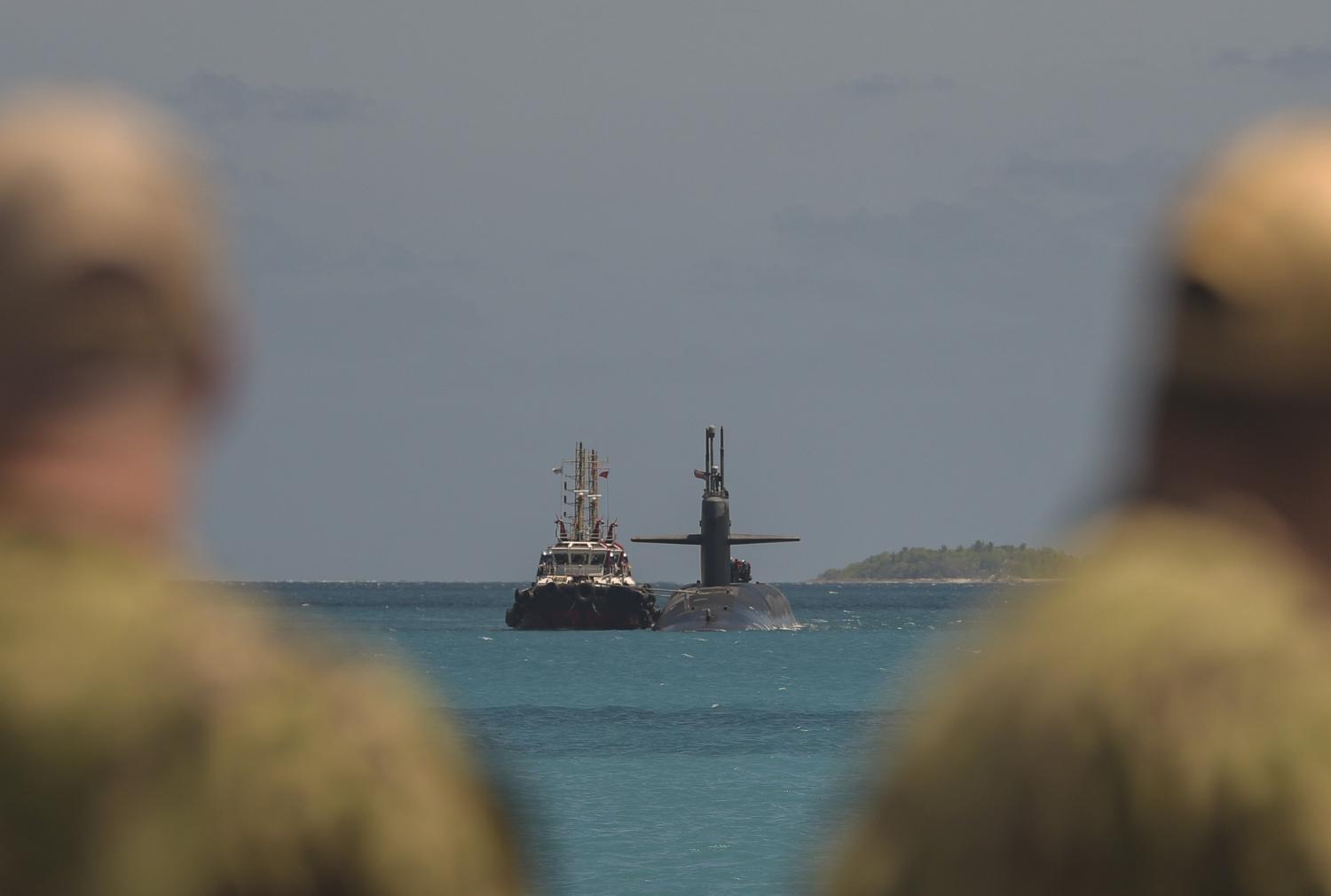In contrast to the AUKUS announcement in 2021, the most recent trilateral AUKUS statement has passed with hardly a murmur from the Pacific. This time round, the Australians were careful to provide advance briefings and to directly address pressing issues on Pacific minds. No subs will carry nuclear weapons. No nuclear waste will be disposed in the Pacific Islands. And Australia recognises that the most urgent security issue for the region is climate change.
The quick visit by PM Anthony Albanese to Fiji on the way home from the San Diego announcement won acceptance from the Fiji Prime Minister Sitiveni Rabuka. There are more pressing Pacific development and economic issues than those occupying the international press concerning who pays for the subs, delivery times, and the expenditure of huge sums.
So, is this the end of AUKUS concerns in the Pacific? There are still issues that will affect receptivity when the nuclear-powered subs head out and into Pacific waters.
When learning of the AUKUS commitment, Kiribati Prime Minister Taneti Maamau reflected on the South Pacific nuclear experience: “Our people were victims of nuclear testing … we still have trauma”. More than 300 nuclear tests occurred in the region between 1946 and 1966, and the region still suffers from resulting cancers, health and ecological impacts. That trauma was one impetus that brought the Pacific Island countries together in solidarity to declare the region free of nuclear weapons and nuclear waste dumping under the 1985 Rarotonga Treaty. Albanese has been clear, as a signatory to that Treaty, Australia will honour it.

AUKUS is a trilateral security pact between Australia, the United Kingdom and the United States to share technology, improve interoperability and deploy nuclear-powered submarines. Australia does not have nuclear weapons. That said, there may be jitters about the US policy to not confirm or deny if nuclear weapons are onboard subs. Will there be nuclear weapons transiting the region unknown?
New Zealand has made clear that they support ANZUS, the treaty between Australia, New Zealand and the United States to protect Pacific security, but nuclear submarines will not be welcomed in their ports under their nuclear free zone policy (the focus of the 1980s ANZUS crisis). Other countries with similar policies may follow, such as Vanuatu. For other countries that signed the Rarotonga Treaty, it will be a sovereign decision whether or not to allow nuclear-powered craft in their ports. The Rarotonga Treaty only explicitly bans nuclear testing and nuclear waste disposal.
There is a regional determination not to accept any future nuclear risks, evident in the strong opposition of the Pacific Island Forum secretariat to the Japanese proposal to dispose of nuclear waste water from the Fukushima reactor damaged by the 2011 tsunami. The Japanese claim the disposal is safe, but the Secretariat made it clear there was not enough information to convince them. For AUKUS, a good start has been made, but ongoing strategic reassurance and updates will be expected. Australia might have to be clearer on just what the benefits are for the region, and, other than subs, what elements of AUKUS will affect the Pacific Islands?
We are just learning about the type of subs likely to patrol the region, but before they are permitted into the sovereign waters of the Pacific Islands, leaders will want to know more about the technology and indeed about the whole-of-life management and regulation. The nuclear fuel might be contained for 30-odd years, but it does not disappear. The Pacific has been assured that what is produced for Australia will stay in Australia – but details matter. There have been promises before of technology safety, as well as sound storage and management systems to protect the environment, and then impacts occurred, including cracks in the nuclear storage areas in the Marshall Islands.
Finally, the Pacific Islands have learned from the Second World War that when elephants fight, the small can get trampled. Geopolitical tensions in the Pacific between Australia, the United States and China are already causing concerns among Pacific Island countries. Papua New Guinea Prime Minster James Marape has previously declared “we cannot afford the stand-off between our trading partners” and Tuvalu’s Foreign Minister Simon Kofe has this week raised concerns.
The 2011 Fukushima disaster highlighted the danger of nuclear power to human health and the environment. As we discuss nuclear-powered submarines in the Pacific, we must also address concerns about increased militarization of the region. #EnvironmentalProtection #PeacefulSolution https://t.co/ZCQ0hbn86q
— Simon Kofe (@Simon_Kofe) March 18, 2023
AUKUS nuclear-powered submarines may be a technological innovation that helps protect maritime territories and the region, but if operational in the South Pacific region, the worry will be that it “ups the ante” in the geopolitical contest. The Pacific does not want its Blue Pacific continent militarised, and certainly doesn’t want China feeling it needs to bring its rapidly increasing naval and nuclear assets into the region for “balance”.
Some in the region, no doubt, will welcome the greater efforts by the West to bolster security and protect ocean spaces. Some leaders have reinforced the “Pacific Family First” approach to security and are sticking with their valued traditional allies. Australia is rapidly strengthening bilateral security agreements around the region, including with Fiji, Kiribati, Vanuatu and Papua New Guinea. The recent Ukraine-Russia war has demonstrated how fast tensions can escalate and nuclear power accountability be abandoned. Regional security among trusted friends is at a premium.
Pacific neighbours understand the drivers behind AUKUS and the Australian desire to shore up its security. But that won’t alleviate concerns about the militarisation of the region and potential “accidents” when nuclear military vessels come to their waters.
And as the deal rolls out, some will also look at the huge sums to be spent on these subs and feel their very pressing existential threat from climate change also requires this type of focused, coordinated and substantial investment.


